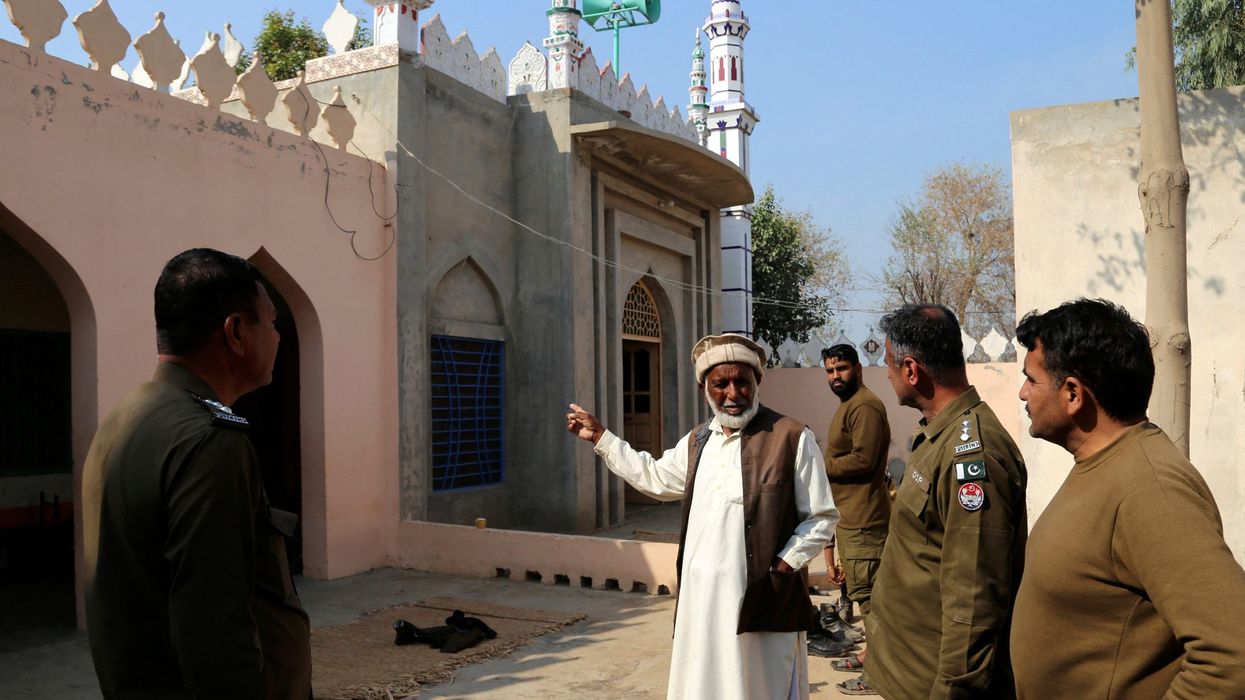A MIDDLE-AGED mentally challenged man was stoned to death and his body hung from a tree by a mob for allegedly desecrating a religious book in a remote village in Pakistan's Punjab province.
The incident, coming months after the lynching of a Sri Lankan national, has sparked nationwide outrage.
Police said on Sunday (13) that the killing took place in Jungle Derawala village in Khanewal district, 275-km from Lahore, on Saturday (12) evening.
Local people gathered after their evening prayers, following announcements that a man had torn pages of the Holy Quran and had set them on fire. Though a police force was deployed in the village before the incident, the mob outnumbered them.
The mob seized the victim from the station house officer’s custody and tied him to a tree, eyewitnesses said.
He claimed innocence but the villagers hit him with bricks until he died.
Police officer Muhammad Amin said the mob hung his body from a tree.
"Police tried to take the injured man into custody, but we were outnumbered by the mob, and they killed him. They chanted religious slogans and attacked the two policemen who tried to bring the victim's body down from the tree. Once fresh reinforcements arrived in the village, they shifted the body to a mortuary," Amin said.
According to BBC Urdu service, the victim was identified as Mushtaq Ahmed, a resident of Bara Chak village. The villagers said that the victim was mentally challenged.
Several videos have surfaced on social media in which the mob can be seen torturing the man and hanging his body on the tree. Some had even tried to burn his body, according to the videos that are circulating online.
Special representative to the prime minister on religious harmony Hafiz Mohammad Tahir Ashrafi condemned the incident and called for action against the perpetrators.
He said the victim was not mentally sound and had been suffering from a mental illness for around 15 years.
The incident comes a little over two months after a Sri Lankan executive of a garment factory was lynched and his body torched by angry supporters of a hardline Islamist party that attacked the facility in Punjab's Sialkot over blasphemy allegations.
Punjab inspector general of police Rao Sardar Ali Khan submitted a preliminary report of Saturday's incident to Punjab Chief Minister Usman Buzdar. According to it, a case was registered against 33 suspects and 300 unknown persons while sections related to heinous crimes and terrorism were also added.
Prime minister Imran Khan expressed anguish over the incident and said the culprits involved in the lynching will be "dealt with (the) full severity of the law" along with police officials who "failed in their duty".
"We have zero tolerance for anyone taking the law into their own hands and mob lynching will be dealt with the full severity of the law," he tweeted a day after the incident.
(PTI)
Mentally challenged man stoned to death in Pakistan over ‘blasphemy’












